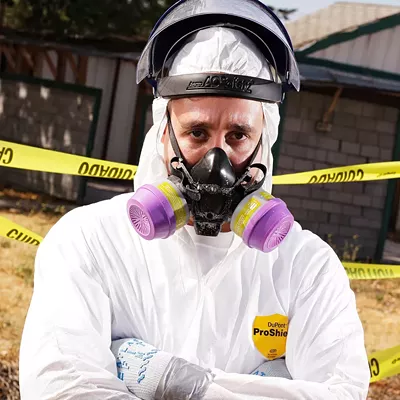
People often weep in Marissa Barranger’s office. They cry as they recall vivid details of sexual assault, as they unearth memories they’ve never shared with anyone. Or they cry because, for the first time in their lives, they can afford to unburden themselves to someone who cares.
Barranger, a therapist at Lutheran Community Services Northwest, counsels victims of sexual trauma — rape, incest, sex slavery — who have no access to health insurance, who don’t qualify for Medicaid or can’t afford private coverage.
Some of her clients have been keeping their experiences secret for so long that “by the time they come to me, they’re not functioning,” she says.
Theirs are stories of brutal violence that shrouds its victims in shame and guilt. Clients who suffered years of continued abuse may have never “developed an idea of what is normal,” Barranger says. Some cases are more severe than others, but each one presents a unique puzzle.
“How horrendous and horrific these experiences are for some people can shift how [they] view the world,” she says. “Our job is to identify what is keeping them stuck.”
That means getting to the root of their pain. Her clients write down accounts of their trauma. They delve into the reasons they think the event happened. They unload memories they have been carrying for years.
For Barranger, hearing those stories day after day can take its toll.
“Some days, I feel drained and hollow,” she says, “but I make sure that when I leave this office, I leave. I’m not going to worry about what happened at work or how a certain client is doing…. There are times I’ll wake up thinking in the night, but I just go back to: ‘This is their journey. I can only do what I can do.’”
One key to maintaining stability is the support from others at LCSN, she says. Dan Fox, one of Barranger’s supervisors, says that the support is crucial: The average mental health professional lasts about three years before transferring to another field.
Before his current job, which includes running a therapy group for relatives of murder and suicide victims, Fox worked in residential mental health care. “A lot of times, people would be crying for extensive periods of time. That wailing — I don’t care who you are — that hits you deep,” he says. “Being alone with the pain of others can be a fast ticket to burnout.”
To prevent burnout, counselors at Lutheran meet regularly with supervisors for “self-care” — to discuss their struggles and to “connect to the rest of the world,” Fox says.
The techniques that therapists teach their patients are crucial for maintaining their own sanity, says Dr. John Miller, who counsels veterans suffering from post-traumatic stress disorder at the Spokane Veterans Affairs Medical Center.
“As human beings, we truly are the sum of all of our experiences,” Miller says. “They all have an impact in some way. That’s inescapable.”
Miller carries those stories with him — on his drive home, or to the grocery store — but he uses the same thought-stopping strategies he teaches patients to shift his mental focus to something less painful.
Then there are times when young veterans share their memories from Iraq or Afghanistan — making Miller think of his son, who recently returned from combat in Iraq. On the job, Miller takes deliberate steps to keep personal thoughts at bay and to stay present for the six to eight combat veterans he sees each day.
“There are still some exceptionally difficult days when I look back and ask myself why I ever got into this,” he says. “Then the next veteran comes in and reminds me why I got into this and why I’m still here.”
No therapist can neatly list the steps to guaranteed mental and emotional recovery. They wake up every day to a career that concentrates horrendous atrocities in one place. Each case has its own potential for hope and challenges, but it only takes one success to keep them coming back.
“The only reason at the end of the day to get through this is the clients I’ve seen heal and the strength they have to go on,” Barranger says. “It’s immeasurable.”























